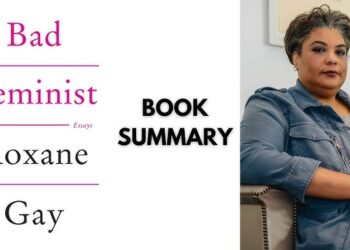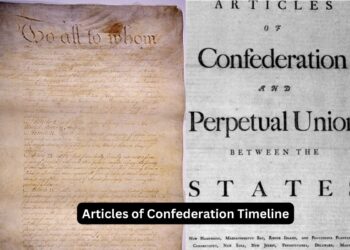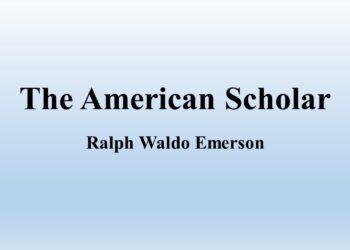Stronger Magic Essay by Nick Sturm
Stronger Magic Essay by Nick Sturm-“Stronger Magic,” penned by Nick Sturm, explores poetry’s unique ability to evoke a sense of wonder and enchantment akin to magic, transcending conventional language and logic. Sturm examines how poets, such as Frank O’Hara, Emily Dickinson, and Walt Whitman, employ language to create moments of transformation and revelation for their readers.
Sturm begins by defining magic as a force beyond rational comprehension, paralleling it with poetry’s capacity to transport readers into realms of mystery and awe. He introduces the concept of “stronger magic,” illustrating poetry’s ability to surpass ordinary language and evoke deeper emotional responses through techniques like metaphor and imagery. By embracing ambiguity, poets tap into a primal form of communication that resonates with readers on a visceral level.Stronger Magic Essay by Nick Sturm
Also Read-
- At a Slight Angle to the Universe Essay by Ben Libman
- Not a Game Essay by Keith D. Leonard
- Ordinary Unhappiness Essay by Anahid Nersessian
Throughout the essay, Sturm provides close readings of poems exemplifying “stronger magic,” analyzing how poets use language to evoke the surreal and uncanny. He also explores the symbiotic relationship between poet and reader, portraying interpretation as a magical act in itself. Sturm contextualizes poetry within broader cultural and historical frameworks, highlighting poets’ inspirations from myth and folklore.
Stronger Magic Themes
- Magic and Poetry: Sturm delves into the parallels between magic and poetry, highlighting how both endeavors aim to transcend the ordinary and evoke a sense of wonder and enchantment. Through language, poets create spells that transport readers to realms of mystery and transformation.
- Limits of Language: Central to the essay is the theme of language’s inherent limitations. Sturm explores how poets grapple with these constraints, employing various techniques such as metaphor and imagery to convey experiences that elude precise articulation. This theme underscores the elusive nature of both magic and poetry.Stronger Magic Essay by Nick Sturm
- Reader Participation: Sturm emphasizes the interactive nature of poetry, where readers actively engage with the text, unraveling its meaning and contributing to its effects. Interpretation becomes a form of magic in itself, as readers immerse themselves in the poet’s world and participate in the creation of meaning.Stronger Magic Essay by Nick Sturm
- Ambiguity and Uncertainty: The essay underscores the importance of ambiguity and uncertainty in poetry. Sturm argues that by embracing these qualities, poets tap into a deeper level of communication that resonates with readers on an emotional level. Ambiguity adds to the mysterious and enigmatic quality of both magic and poetry.Stronger Magic Essay by Nick Sturm
- Tradition and Inspiration: Sturm explores the rich tradition of poetry, drawing inspiration from ancient sources such as myth and folklore. By connecting with these primal sources of creativity, poets infuse their work with a timeless quality that resonates across cultures and generations. This theme highlights the enduring nature of both magic and poetry, linking contemporary poets to their predecessors.
Conclusion:
In conclusion, “Stronger Magic” by Nick Sturm offers a compelling exploration of the intersection between poetry and magic, highlighting how poets utilize language to create moments of wonder, mystery, and transformation. Through the comparison of poetry to magic, Sturm underscores the transcendent power of language to evoke emotions and experiences that transcend the ordinary. By examining themes such as the limits of language, reader participation, ambiguity, and tradition, Sturm invites readers to reconsider the role of poetry in our lives and recognize its capacity to inspire, enchant, and provoke contemplation.Stronger Magic Essay by Nick Sturm
FAQs
1. What is the central thesis of “Stronger Magic”?
The central thesis of “Stronger Magic” is the comparison between poetry and magic, exploring how poets use language to create moments of enchantment and transformation akin to magic spells.
2. How does Sturm define “stronger magic”?
Sturm defines “stronger magic” as poetry that surpasses ordinary language to evoke a profound sense of wonder and awe in readers. This type of poetry embraces ambiguity and uncertainty, tapping into a deeper level of communication that resonates on a visceral level.
3. What role do readers play in the poetic experience according to Sturm?
Sturm suggests that readers play an active role in the poetic experience, engaging with the text to unravel its meaning and contribute to its effects. Interpretation becomes a form of magic, as readers immerse themselves in the poet’s world and participate in the creation of meaning.
4. What themes does Sturm explore in “Stronger Magic”?
Sturm explores themes such as the limits of language, reader participation, ambiguity, and tradition. These themes underscore the mysterious and timeless qualities of both magic and poetry, inviting readers to reconsider their understanding of language and creativity.
5. What is the significance of tradition and inspiration in the essay?
Sturm emphasizes the importance of tradition and inspiration in poetry, drawing connections to ancient sources such as myth and folklore. By tapping into these primal sources of creativity, poets infuse their work with a timeless quality that resonates across cultures and generations.
















